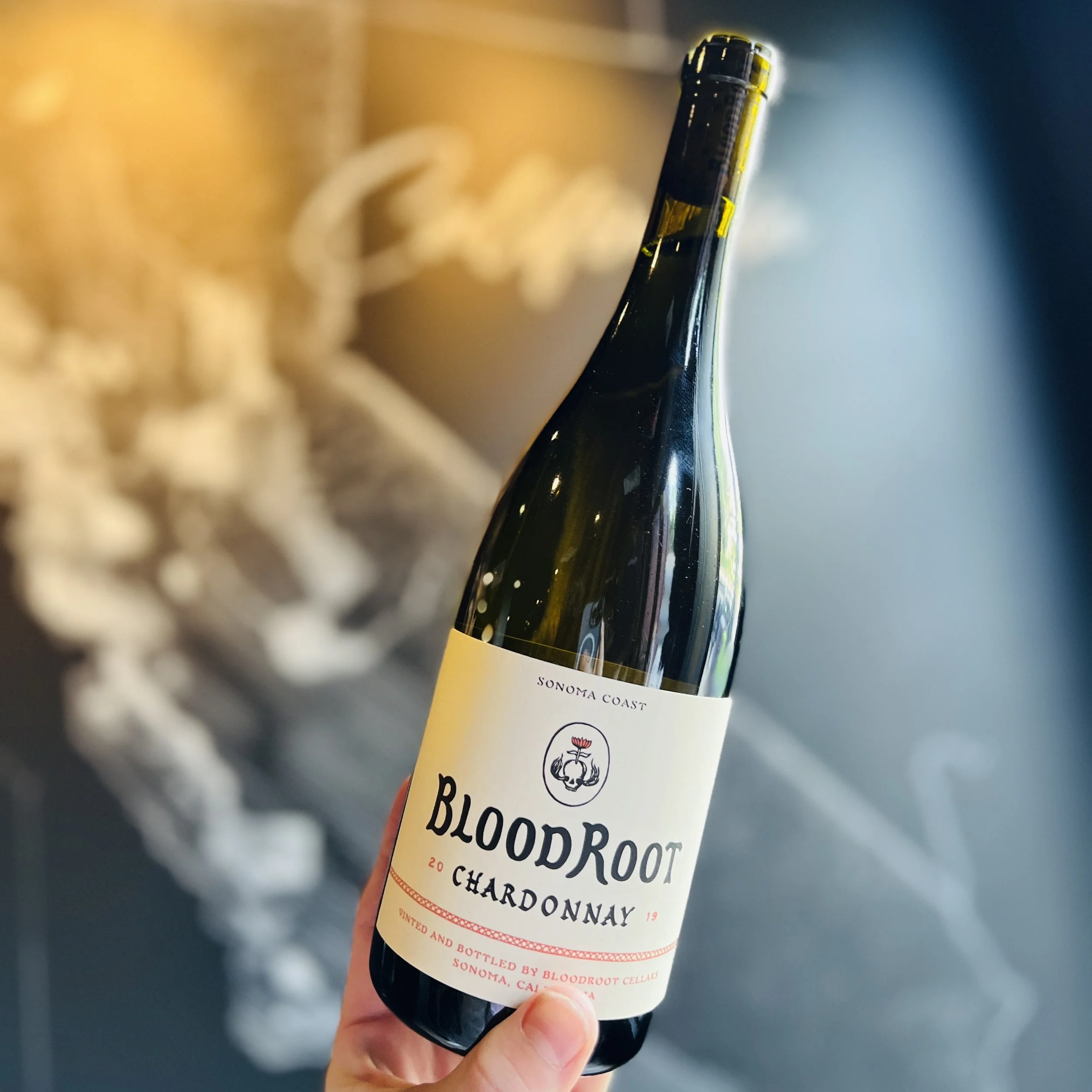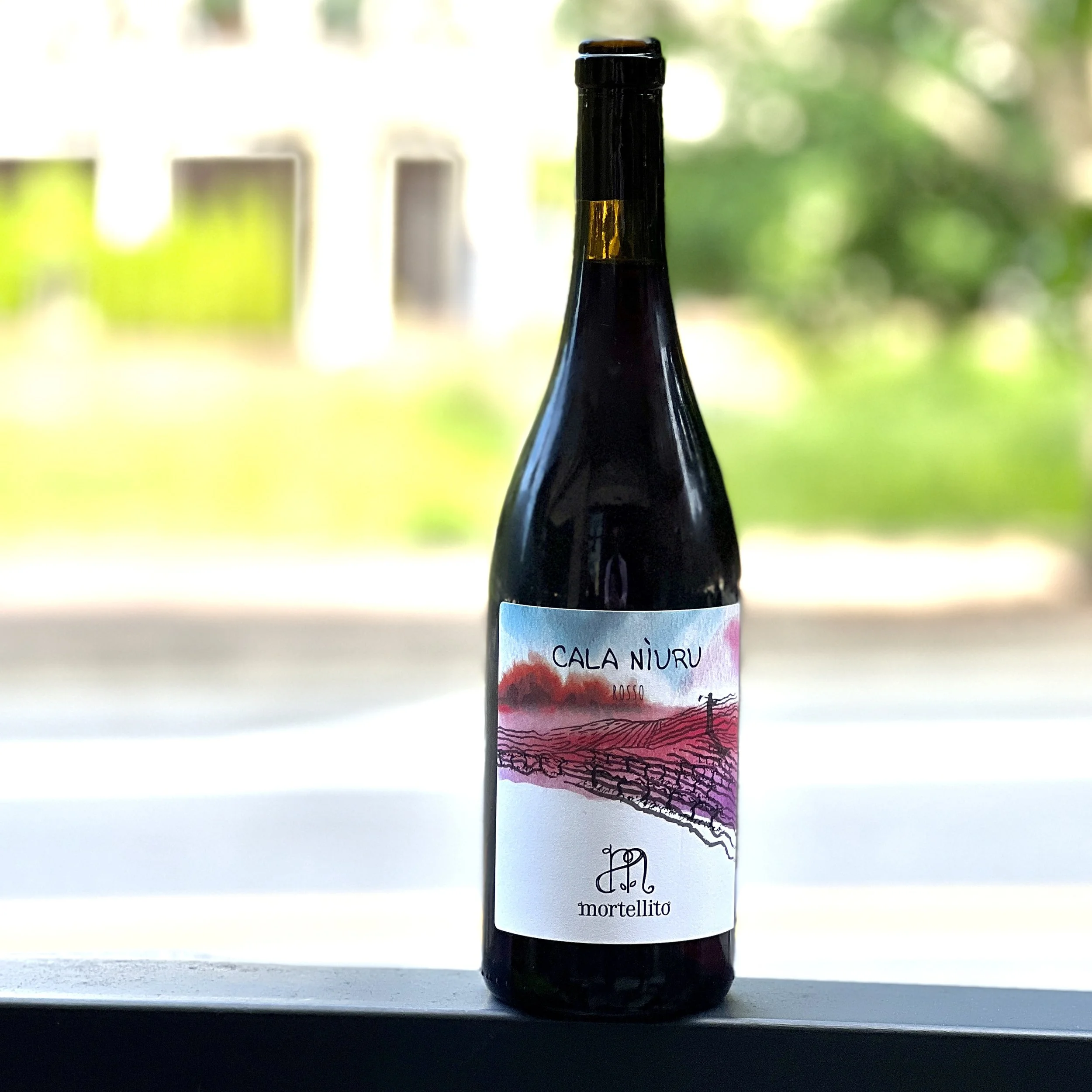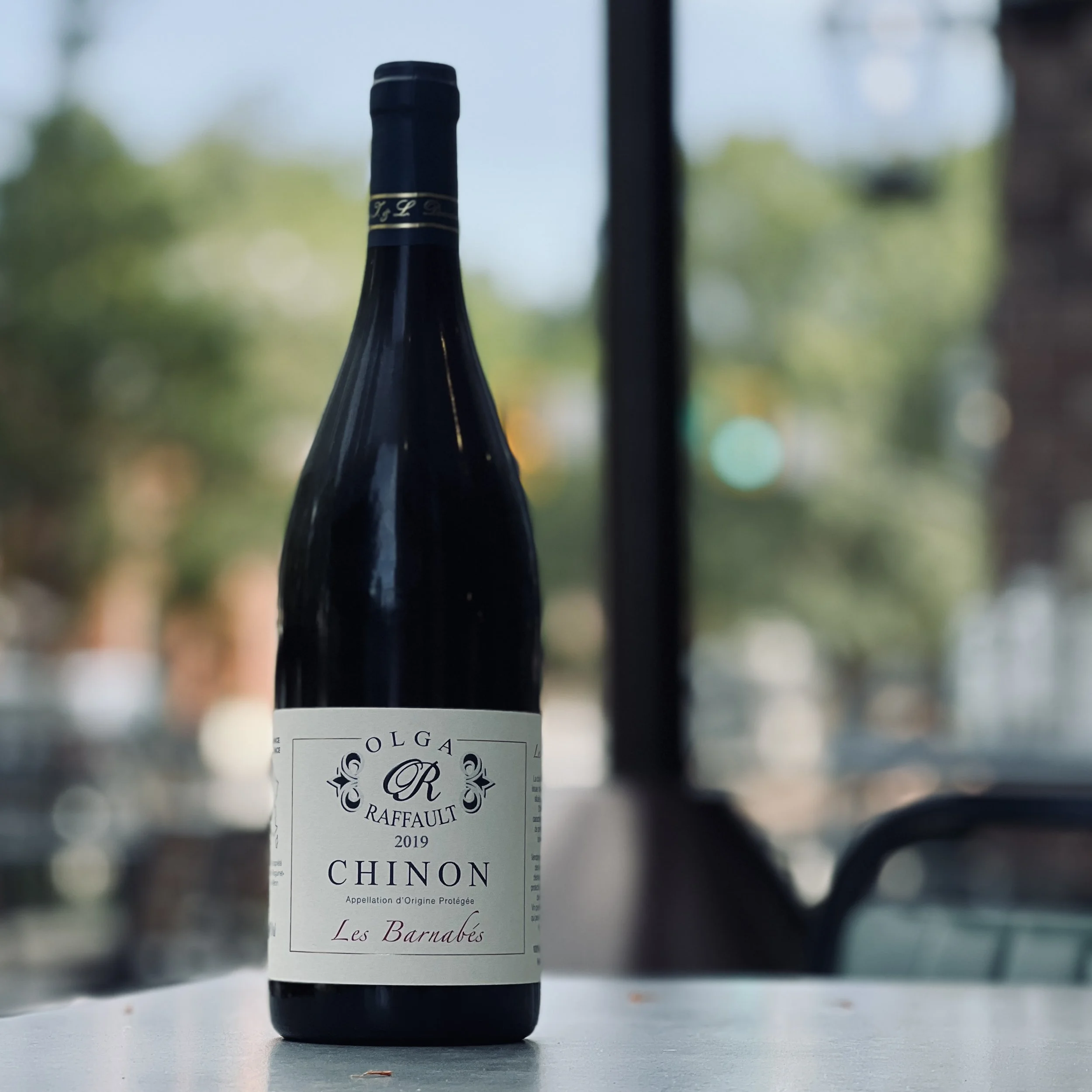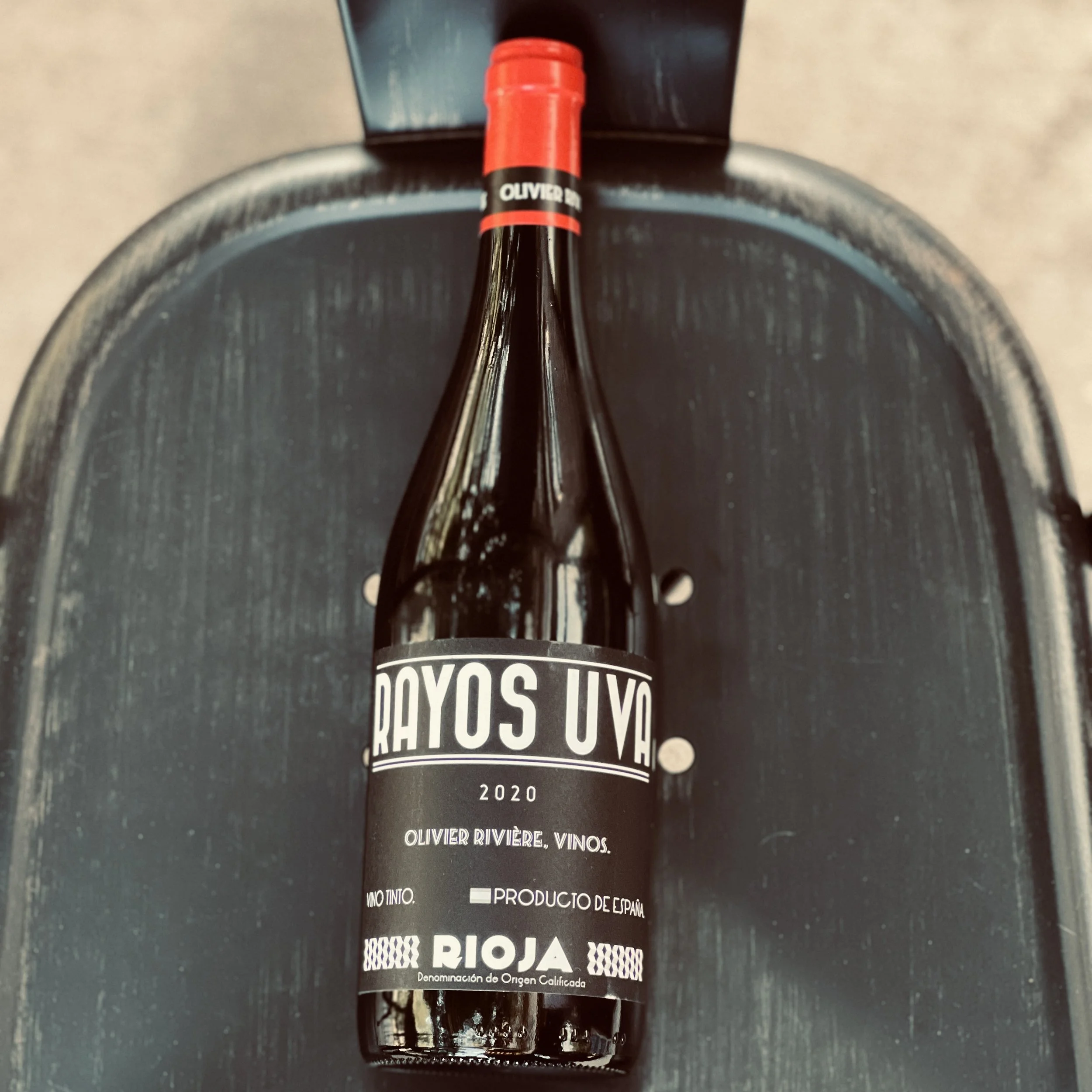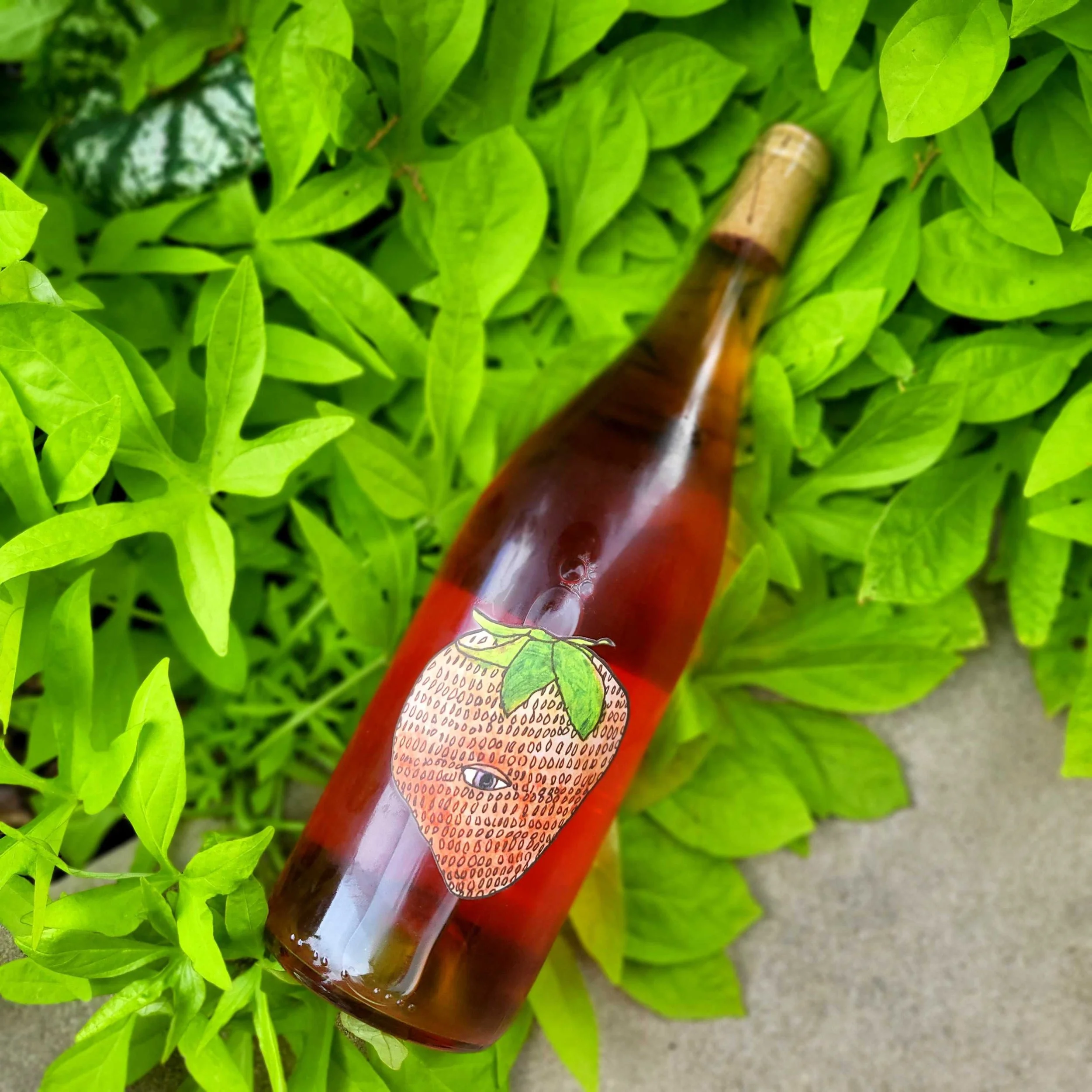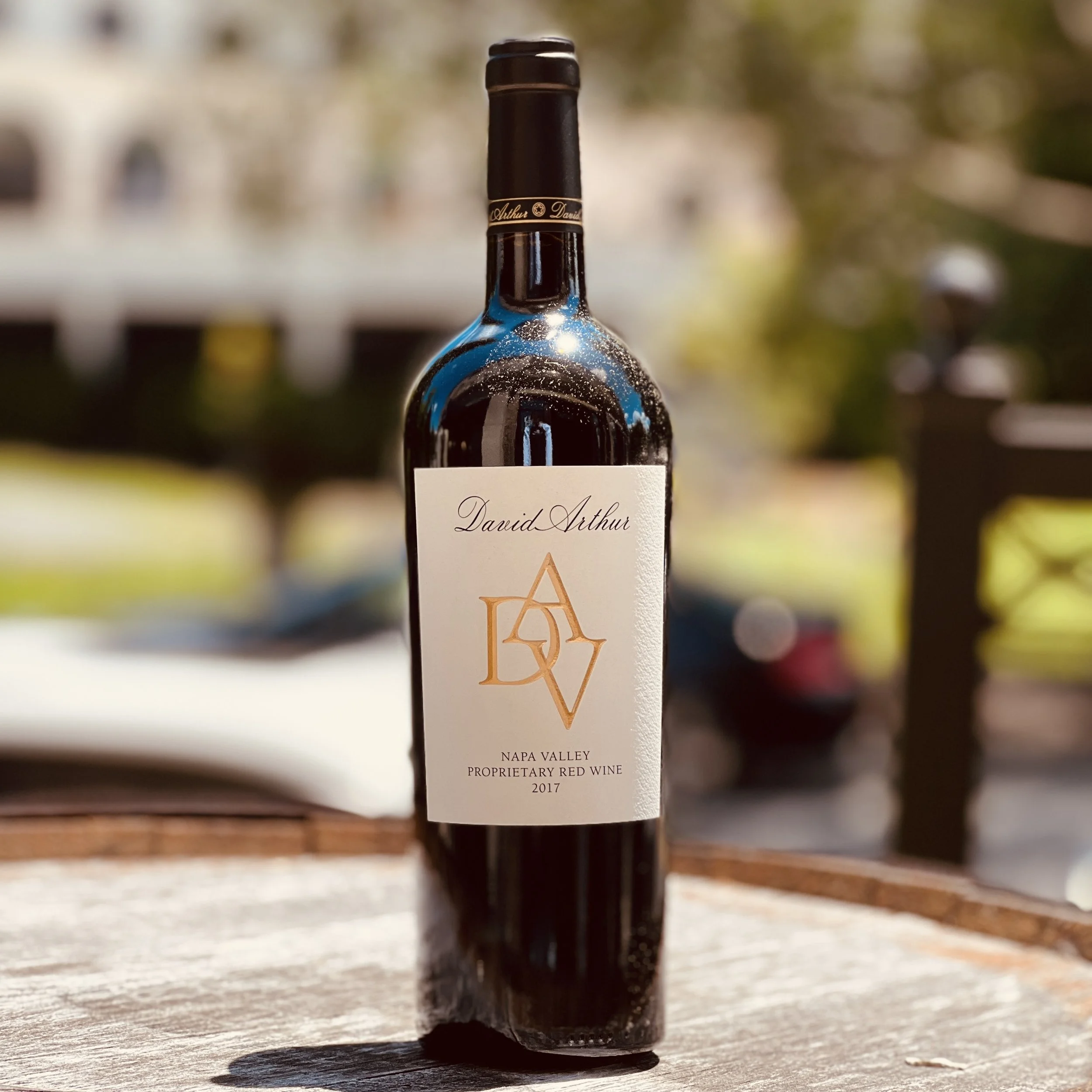UNDERGROUND WINE SOCIETY: July
SCROLL BELOW TO FIND INFORMATION ON YOUR WINES!
The Explorer
$49/month
White/Orange/Rosé
Abbia Nova. Passerina del Frusinate 'Senza Vandalismi'
Grape: Passerina
Region: Lazio, Italy
Wine Notes: Hand-harvested, whole cluster, 12-16 hour maceration, direct press, spontaneous fermentation in stainless steel with indigenous yeasts. Aged in stainless steel and demijohns, sur lie. No Fining or Filtration
About the Winery: Cousins Daniele and Pierluca Proietti are from Piglio, south of Rome in the Lazio region. They own 7 hectares of vineyards, divided into many small parcels on the most important crus of Cesanese del Piglio DOCG. All the vineyards are in the town of Piglio, where viticulture dates back to the Roman Empire. Some of the vineyards are home to ancient archeological finds of Nerva and Traiano’s villas that prove their very long history. The vineyards are between 15 and 90 years old, and have either been inherited or acquired by the family throughout the years. In addition to the vines, they cultivate 1000 indigenous olive trees, walnuts, officinal herbs and a vegetable garden.
Bloodroot Chardonnay
Grapes: 100% Chardonnay
Region: Sonoma Coast, California
Food Pairing: Lemon Risotto
Wine Notes: Declassified fruit from excellent Sonoma vineyards - this has aromas of delicate oak and butterscotch joined to fruit flavors of apricot and citrus. The quality of the fruit shines through on the palate with great textural depth and a flavor set of preserved citrus peel, apricot, oak and butterscotch.
Sourced from vineyards in Green Valley, Occidental and Sebastopol; Goldridge sandy loam soils. Fermented 100% in Barrel and Full Malolactic fermentation. Aged 18 months in French oak (35% new)
About the Winery: The spirit of BloodRoot is simple - make wines that reflect the soul of place, and make them at a quality and price level that make them absolute no-brainers to drink. Spearheaded by Noah and Kelly Dorrance of Reeve Wines, BloodRoot is a collaboration between esteemed winemakers with great vineyard sourcing who have come together to make masterful, value-minded wines. The wines, sourced from multiple benchmark vineyards throughout California’s most respected wine growing regions, reflect the soul of each place, creating wines that are timeless expressions of California’s dynamic terroir.
The Paring
Grapes: 100% Sauvignon Blanc
Region: California
Food Pairing: Basil pestos & ricotta ravioli
Wine Notes: Few Sauvignon Blanc wines this youthful can also boast this level of complexity. The nose is deliciously exotic, with lemon, melon and white peach soaring out of the glass. The wine’s laser beam of acidity refreshes and cleanses the palate, while its decadent texture demands another mouthwatering sip. Perfect for those warm nights on the patio.
About the Winery: The Paring was born in 2006 out of a desire to explore, experiment and excite—without rules. Made from the vineyard blocks that are either too young or don't fit into the vintage style of the highly acclaimed JONATA and The Hilt wines—The Paring is a cut of each estate. The Paring puts pedigree first, and then lets imagination take over.
The grapes are sourced primarily from three Santa Barbara regions on the vanguard: Santa Ynez Valley, Sta. Rita Hills and Santa Maria Valley.
Marabino Muscatedda
Grapes: White Moscato
Region: Val di Noto, Sicily
Food Pairing: Spiced Chicken Wings or Curry
Wine Notes: The "muscatedda" is the local name of the first vineyard that you harvest in these areas; "prima vigna muscatedda" comes from the only native white grape variety of the territory of Val di Noto, the Moscato di Noto. An aromatic grape used for the production of natural sweet wines, wine of semi dried grapes and fortified wines, that we wanted to render in a dry version.
From a vineyard exposed to the West, at 65 meters above sea level, cultivated on white-calcareous soil that reflects light and gives saltiness to the wine. The white Muscat of Val di Noto, cultivated on these soils produces vines with a low yield, and wines with delicate aromas, typical of the "Mediterranean scrub". The ripe grapes are vinified in steel tanks with the skins for about fifteen days. It matures in steel tanks until the following spring with continuous Bâtonnage, carried out according to the lunar phases.
About the Winery: Marabino uses biodynamic agriculture to cultivate its orchards, olive groves and vinyards, and all our wines are produced from our grapes. The well-ripened grapes, are selected and harvested by hand, they ferment spontaneously with indigenous yeasts, without using any product or additive in every aspect of winemaking. Our mission is to work in harmony with mother nature, by observing her laws, protecting and respecting the balance of her habitat, thus producing wines that are free from synthetic chemicals from the vinyard to the cellar, while ensuring that they are an expression of the territory in which they were born.
Domaine La Bastide Blanche Bandol Rosé
Grapes: Cinsault, Grenanche, Mourvedre
Region: Bandol, France
Food Pairing: Pork chops or eggs benedict
Wine Notes: The rosé, produced about 80,000 bottles a year, is composed of Cinsault and Grenache Mourvedre. It is obtained by direct pressing of Mourvèdre and maceration of 24 hours of Grenache and Cinsault. Malolactic fermentation will be based varieties. The wines will be raised from 4 to 10 months in tank before placing on the market. Every January, this cuvée is assembled by Peter Weygandt at the domaine with Stéphane Bourret (wine-maker) and the Bronzo family so every year the blend is a little different, but the quality and signature "Bastide Blanche Bandol rosé" character never strays. Dominant Mourvèdre with about equal parts Cinsault and Grenache from hand-harvested grapes on clay-limestone soil with cailloux, yielding only about 36hL/ha. About 1100 cases produced
About the Winery: La Bastide Blanche is a family-owned estate located in Sainte-Anne du Castellet since 1972. We are crafting Red, White and Rosé Bandol wines. La Bastide Blanche is located in the foothills of Sainte-Baume Mountain, 7 kilometers away from the Mediterranean Sea. The soil is mainly limestone scree. Our wines are produced from a dozen of grapes, including Grenache, Cinsault, Clairette and of course Mourvèdre.
Cantalapiedra Viticultores, Lirondo Clarete
Grapes: Verdejo and Tempranillo (Tinto de Toro)
Region: Rueda, Spain
Food Pairing: Grilled Tomatoes & Asparagus
Wine Notes: This is a traditional style "Clarete" wine you'll find in central Spain, a blending of both white and red juice that often makes a something akin to a chillable red, dark rose, or light red. The style is nothing new either. The juice is vinified together, then spends 8 months on the lees before bottling. Drink chilled!
About the Winery: In the region of Castilla y Leon of western Spain is Rueda. The grapes Verdejo and Tinto de Toro thrive here. In Rueda, there was a transition of conventional winemaking and then a slow progression (by a few) to make more expressive wines with lower intervention. The Cantalapiedras family dates back to the 19th century in the Rueda, with each generation bringing something new. There was a transition of conventional farming and selling fruit to finally bottling their own wines in 2014. There was another transition of making organic and biodynamic farming a priority. Manuel is the lead of the current generation, making wines both single vineyard and entry level.
Cicada’s Song Rose
Grapes: 80% Tibouren, 20% Rolle (Vermentino)
Region: Provence, France
Food Pairing: Eggplant or Mushroom Pizza
Wine Notes: Its dazzling light pink color puts one in the mood for this wine’s classic Provençal aromas of fresh red berries, melon, and sweet white flowers. The round palate has plenty of sea air minerality and lilting acid woven into the fleshy stone fruit and light raspberry, framed by wild herbs and white pepper. The innovative use of Rolle (also known as Vermentino) and the ancient Tibouren grape for most of the blend sets this apart from other Provence rosés by giving it a savory complexity and invigorating, wind-swept snap. It makes a harmonious pairing with grilled red mullet, flambéed prawns, octopus salad, or fresh pasta with basil and grassy Provence olive oil. Certified organic.
About the Winery: Cicada’s Song Rose is a collaboration between JP Bourgeois and Ed Buffington, co-owner of The Community Tap in Greenville, South Carolina. The wine blend is produced by Château des Annibals. The wine is the achievement of meticulous work, which required particular attention. From the choice of old vines for the wine balance to the close selection of the best juices, the entire team worked carefully to offer a fine wine that fits perfectly with the high-level standards of the winery. Provençal folklore tells us that the cicada was sent from heaven to sing, waking people from their afternoon naps and signaling a return to work. Our Cicada’s Song is more impetuous. It emanates soulfully from your glass, inviting you to enjoy life through its Mediterranean lens − a lazy afternoon with friends, tasty fare, any and all things golden. We believe wine should have a sense of place, and Cicada’s Song is just that, as vinified by Nathalie and Henri DeWulf Coquelle.
Reds
Angelo Negro
Grapes: Brachetto
Region: Piedmont, Italy
Food Pairing: Pair it with small bites or a cheese course as you prepare dinner, or save it for the main.
Wine Notes: Cherry red color with purple hue. Cloudy due to presence of residual yeast. Bright, fresh aromatics coupled with delicate hints of violet and rose. A pleasantly tart wine with notes of candied red fruit on the palate.
About the Winery: Angelo Negro is a historic estate dating back to 1600's in the Roero area and one of the first to be certified organic here (organic isn't a big thing, unfortunately, in Piemonte, as in many other famous regions where consistency is more important). But the Negro family has managed to carry on the legacy of this prestigious region while maintaining strict organic grape growing and low-intervention winemaking standards. Like in this pretty Vino Rosso, a modern expression of the Brachetto grape that showcases the dry side of this aromatic grape, giving you the pretty rose and violet and crunchy red cherry fruits for which this varietal is known, without the higher sugar levels of the traditional sweet Brachetto style. Bright and fresh, herbal and tart, this light wine is such a versatile quaffer!
Domaine de la Pépière Côt-Merlot 'La Pépiè' Val de Loire
Grapes: Côt aka Malbec, Merlot
Region: Loire Valley, France
Food Pairing: Perfect with roast pork, smoked turkey, or stuffed butternut squash.
Wine Notes: This light-bodied cuvée is full of crunchy, juicy dark fruit (think snappy red plum and black currant) with a whiff of savory crushed herbs. Unpretentious and totally delicious, this is the kind of natural wine that keeps us coming back for sip after sip - and the kind of value that makes it easy to share!
About the Winery: Domaine de la Pépière is situated in the village of Maisdon-sur-Sèvre, right at the edge of Brittany. Marc Olliver, a former engineer who grew up in the hamlet of La Pépière, founded the estate in 1984. Marc’s father had owned some vineyards in Muscadet-Sévre et Maine, but was not a winemaker, so Marc took over the vineyards, releasing his first vintage in 1985. The estate has grown steadily over the years, with the addition of new plots chosen for the age of their vines and quality of their terroir. Beginning with more conventional winemaking methods, Marc eventually transitioned to a low-intervention style, fermenting his wines with ambient yeast, and using the barest minimum of sulfur. His vineyards are now all certified organic as well. Marc is credited with opening up a world of previously unknown potential in the area, and his racy, mineral-driven Muscadets have become a benchmark for the region. After decades of impressive winemaking accomplishments, Marc retired with the 2019 vintage, passing the reins to residing proprietors Rémi Branger and Gwénaëlle Croix. Marc has known Rémi since childhood, and when Rémi’s father retired in 2005, Marc purchased his land and Rémi began working for Marc in 2006, becoming a partner in 2011. Buoyed by youthful energy, the estate continues to produce classic wines of the region using sustainable practices - as this bottle attests. Just three of the domaine’s 43 ha of vines are planted to black grapes, consisting of côt, merlot, and cabernet franc (locally known as Breton). They occupy part of the 10 ha “home” vineyard in Clisson, which boasts rocky, granitic soils. A blend of 82% côt (malbec) and 18% merlot, grapes are hand harvested, destemmed, and crushed, then the free run juice is spontaneously fermented with ambient yeasts, and aged for five months in stainless steel. It is classified as a Vin de Pays de la Loire (as the Muscadet AOC does not allow for red wines.)
Eberle Full Boar Red
Grapes: 36% Cabernet Sauvignon, 23% Barbera, 14% Zinfandel, 27% other
Region: Paso Robles, California
Food Pairing: This wine is a perfect pairing partner with garlic and herb braised short ribs or a pappardelle beef ragout. We also recommend trying it with wood fire flatbread or savory BBQ. This wine is multifaceted and can go with a variety of different meals.
Wine Notes: Our current Full Boar Red is mostly a Cabernet Sauvignon, Barbera-based blend with splashes of Zinfandel, Petite Sirah, Tempranillo, and a few others varietals. A collaboration of flavors and aromas come together to make a wine you will want to savor upon the first sip. Rich flavors of black cherry, cola, and sweet leafy tobacco, combine with bright acidity and firm mid-palate tannins to form a full-bodied wine with a long finish.
Golden West The Promise
Grapes: 100% Pinot Noir
Region: Royal Slope, Washington
Food Pairing: Roasted Duck with Olives
Wine Notes: Complex layers of aroma and flavor. Black raspberry, forest floor, Allspice and velvet theater drapes from the nose. Wild mushroom, limestone, suede and earth engulfs the palate that is full, elegant and precise as a rare Swiss timepiece.
About the Winery: Golden West is the largest planting of Pinot Noir in the history of Washington state. The vineyard sits on the far western edge of the Frenchman Hills, and is located on the 47th parallel overlooking the Columbia River. A sustainably-farmed single vineyard at nearly 1,600 feet of elevation, Golden West Vineyard is rooted in ancient limestone, sand and volcanic rock: well-drained soil at the same latitude as Pommard; a temperate microclimate moderated by the Columbia River. The land is an untouched jewel. Previously planted to organic peas and beans, the newly planted vineyard now produces the most beautiful expression of the earth: Pinot Noir.
La Boutanche Broc Cellars
Grapes: 100% Zinfandel
Region: Northern California
Food Pairing: Stuffed Peppers with Fennel Sausage or Pomegranate Caprese Salad
Wine Notes: California’s identity as a table wine, for us, begins with Zinfandel. It’s a fresh, vibrant grape when picked early and plays well with food pairings. The Zinfandel grapes were destemmed and naturally fermented in open top stainless fermenters. After the wine was gently pressed, it was aged in neutral French oak barrels for 8 months. We made this acid driven, food friendly wine that everyone should enjoy at the table.
About the Winery: At Broc Cellars, all of our wines are made using spontaneous fermentation, a process that means we only use native yeasts and bacteria that exist on the grapes in order to make wine. We don’t add anything – this includes nutrients, yeast, bacteria, enzymes, tannins or other popular fermentation agents. Sulphur is a naturally occurring element in all wine, the amount found can vary. We add little to no S02, depending on the wine and style.
Mortellito ‘Calaiuru’
Grapes: 75% Frappato and 25% Nero d’Avola
Region: Sicily, Italy
Food Pairing: Pair with spicy fall flavors, sun-dried tomatoes or roasted red pepper.
Wine Notes: Mortellito [MORT-el-li-to] is in Val di Noto, in the corner of Sicily that lies at the same latitudes as North Africa’s arid desert climate. Its vineyards are a few kilometers from the coast, with grooves of ancient olive and almonds trees breaking the wind off the sea. Abandoned and still working fishing ports dot the landscape. Owner Dario Serrentino has always enjoyed the contrasts of this coastal growing area, which he calls ‘a desert next to the beach.’ Over the years, lucky for us, he’s learned to coax extremely elegant wines from this receding coast of limestone, which, he says, is ‘the magic to produce wines with tension, freshness, and complex salinity.’ In Dario’s best vintages, his rosso and bianco wines have a tapering svelte finish, cool and salt-dusted. Drinking them is akin to a dive into the nearby Ionian sea on a hot summer day.
About the Winery: Dario has always worked on the family farm in one form or another (his heirloom almonds were actually his first love). He changed careers from social worker and part-time farmer to full-time vignaiolo with his first bottling in 2014. He works only with native grapes, including an herbal Frappato, and a spicy-sour bush vine Nero d’Avola. His whites are acid-driven and aspirin-chalky in texture: the Grillo often has a nose of grilled nuts and citrus rinds, the Moscato di Alessandria is floral and herbal (la sua morte, ‘it’s death,’ as the Italians like to say, is a pairing with raw fish crudo). There’s never been any chemical interventions in the vineyards, and there’s an intentional hands-off approach in the cellar, with a minimum of sulphur added at bottling. Avoiding the entrapments of the glou-glou or overwrought luxury style, Dario is part of a very small contingent of producers in Sicily producing fine and natural wines, or as Dario poetically likes to say: mare e terra in vino.
Olga Raffault “Les Barnabes”
Grapes: Cabernet Franc
Region: Chinon, France
Food Pairings: Perfect for Poultry and White Meats and Charcuterie or simply as an aperitif.
Wine Notes: Very "Ligerian" wine, fresh, aromatic, greedy, supple and lively to taste within 3 to 5 years at a temperature between 16 and 17 degrees.
About the Winery: In the beautiful country of Véron, cradled between the Loire and the Vienne, the Domaine Olga Raffault has been transmitting its know-how in the production of its Chinon wines for five generations! Olga Raffault has devoted her whole life to these landscapes that she loved so much and has always been able to share her love of wine!
Rogue Vine Grand Itata Tinto
Grapes: 95% Cinsault, 5% Pais
Region: Guarilihue, Itata, Chile
Food Pairing: Snails or Fish cooked in Garlic Butter
Wine Notes: This is a field blend of old vine, hand harvested grapes consisting of 95 % Cinsault and 5% Pais. The nose is lifted and shows bright red fruits of raspberry and strawberry with rose petals and hints of fresh forest floor. The palate is defined by its light tannin and acid structure that keeps the wine light, accentuating the fruit and leading to a soft finish.
About the Winery: Leo Erazo and Justin Decker started Rogue Vine in 2011 in a one-car garage in Concepcion, Chile. This duo met while teaching at the University of Concepcion. At Rogue Vine, they make wines from the Nipas and Guarilihue subregions of the Itata Valley. All the vineyards are composed of hillside, dry- farmed bush-vines that are a minimum of 60 years old, with some over 100 years old. The soils are primarily comprised of decomposed granite with a mix of clay and quartz. The winemaking is simple and employs native yeast, concrete globes, old barrels, no corrections, with minimal or no sulfur prior to bottling. Itata Valley’s viticulture is primarily practiced through horse plowing and hand farming. Part of Rogue Vine’s focus is to promote the rich culture and history of this long neglected and rural farming community. Leo is also the winemaker for Altos Las Hormigas in Mendoza, Argentina and Justin is an expat from Indiana who got bit by the wine bug and started a family in Chile.
Omen
Grapes: 92% Cabernet Sauvignon, 5% Syrah, 3% Petite Sirah
Region: California
Food Pairing: Pairs best with BBQ and smoked meats
Wine Notes: From blackberry to cassis and cedar, the complexity of the blend transcends into subtle notes of leather and dark chocolate. The mouth feel is rich with luscious and elegant tannins. A very bold and powerful wine that is still approachable and balanced.
About the Winery: Omen Wines are hand-crafted with care from high-quality fruit that have come from “hidden gem” AVA vineyards. This means we have no need to sweeten our wines, or add gum arabic(used to increase mouthfeel) or Velcorin (DMDC). Our desire is to bring excellent wines to anyone, regardless of age or income, who are eager to find an additive-free, crafted wine at an everyday price.
Rayos Uva Rioja
Grapes: Tempranillo, Graciano, Garnacha
Region: Rioja, Spain
Food Pairing: Fig Crostini with Manchego and Caramelized Onions
Wine Notes: Rayos Uva is Olivier’s version of a Bourgongne Rouge sourced from fruit grown in the sandy, gravelly and alluvial soils of Rioja Baja. The blend is dependent on the vintage but usually includes Tempranillo, Graciano and Garnacha – percentages change each year to create a brightly fruity version of Rioja unmarked by oak.
About the Winery: With about 25 hectares of rented and owned vineyards in Rioja Alta, Rioja Baja, Rioja Alavesa, and splitting his time between his own wines and consulting with other producers, it would be an understatement to say that Olivier Rivière is busy. Originally lured to Spain in 2004 by Telmo Rodriguez to convert his vineyards to biodynamics, Olivier came to appreciate the rich history of Rioja and the diversity of its soils and grape varieties. In 2006 he started his own project, and owing to the high cost of land in Rioja, he traded his farming talents for access to grapes from the best sites he could locate. Coming from France, Olivier has an innate sense of terroir. Unlike many of his peers in Rioja, he bases his cuvées not on political boundaries or the length of barrel aging but on terroir. He believes in a quality hierarchy inspired by Burgundy with generic Appellation and Village wines at the base and Premier and Grand cru wines at the top. This is how to understand best what Olivier is doing in Rioja, rather than the traditional Crianza, Reserva, Gran Reserva model or traditionalists versus modernists.
The Connoisseur
$98/month
Las Jaras Rosato
Grapes: 50% Primitivo | 47% Sangiovese
Region: California
Food Pairing: Goat cheese spread on a crusty baguette, with a drizzle of honey
Wine Notes: The 2021 Rosato has a delicate nose and subtle notes of wet stones, star anise, tangerine, and yellow nectarine. The palate shows red plum, yellow nectarine, quince, and silky round tones, and has a long finish that gives a slight pucker and leaves you thirsty for another sip. This wine is going to be lovely all the way through winter, and if you can resist the temptation to drink it all, it will be lovely when aged for longer than a year. As they say in our favorite country in the world: Buon vino fa buon sangue! (Good wine, good health!)
About the Winery: At Las Jaras, our goal is to make delicious wine that has tons of energy and balance. We want them to be vibrant, delicate, and supple all at the same time while also being food friendly and easy for anyone to enjoy. Our wines are intended to reflect the unique terroir of the vineyards using minimal intervention so you can taste their natural, rhythmic expression. If you are not used to drinking wines made this way, the experience can be a revelation.
Betz Family Père de Famille
Grapes: 100% Cabernet Sauvignon
Region: Columbia Valley, Washington
Food Pairing: Grilled Portobello Mushrooms or a Rosemary Filet Mignon
Wine Notes: The vibrant purple/magenta in the glass, the color of the 2019 Père de Famille extends from one rim of the glass to the other, a tell of the intensity to follow. The aromas are expansive and sensual: black and blue fruits, crushed bay leaf and thyme; eucalyptus, orange rind, violets, rose petal and sandalwood. The wine has both power and dimension on the palate, the fruit intensity balanced by baking spices, rocky salinity and fresh tobacco. Elegant and fresh, an almost electric minerality courses through the long finish, supported by silky tannin. Lithe and muscular, this wine is absolutely delicious now with the promise of a brilliant life ahead of it in the cellar.
About the Winery: Since our first vintage in 1997 we have a guiding philosophy; there is no substitute for quality. Each vintage is fueled with endless possibilities. It begins in the vineyards and ends in the cellar and we know our best wines are ahead of us.
David Arthur Proprietary Red
Grapes: Bordeaux Varietals
Region: Napa Valley, California
Food Pairing: Steak, Grilled Meat
Wine Notes: “After nearly forty years of farming grapes on our Pritchard Hill Estate, we are pleased to announce the launch of the Next Generation of David Arthur Vineyards wine ~ DAV. We have created a new, modern wine that represents the bold personality found in each and every bottle of our Estate wines. This Bordeaux-style blend allows us to weave together the rich, concentrated elegance and power of our mountain-grown Bordeaux varietals as well as the best of surrounding vineyards within the Napa Valley. The wine is aged an average of 20 months in French oak barrels, blended with meticulous care and bottled at our vineyard estate. The result is a complex array of aromas and flavors that deliver plush, mouth-filling structure with soft, elegant tannins. We hope you enjoy, as do we, the accessibility and near-term enjoyment this wine offers in its youth and the greater nuance and complexity afforded with cellaring.”
About the Winery: The origins of David Arthur Vineyards and the Long Family Ranch date back to when the Long family started visiting the Napa Valley in the 1950’s. Don Long, a butcher by trade owned a small grocery store in Portola Valley, near Stanford University and had long been interested in the California wine country. With a keen eye for business opportunities, Don began steadily investing in Napa Valley real estate leading to the acquisition of nearly 1,000 acres atop Pritchard Hill in St. Helena, California. Don’s youngest son, David Arthur, founded the winery with his then wife, Joye Dale, in 1985 with the purchase of 30 French oak barrels. David and Joye’s daughter, Laura Long, now works side by side with her father running the day-to-day operations of the winery and vineyards.


